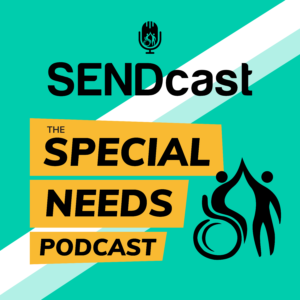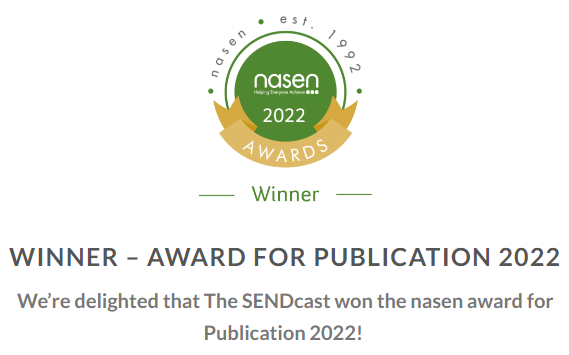“You don’t know what you don’t know”
This is a great phrase and one that drives me to keep learning. I also go off on various tangents when I am learning. I get easily distracted if I am reading or watching a video by the part I don’t know about. I may stop reading and go and learn about that missing knowledge.
When it comes to SEND, you cannot research one area. Children don’t fit into these neat boxes, their needs are complicated, and while some needs are very apparent, others can be hidden.
As the host of the SENDcast, I am in a very fortunate position, I get to talk to and learn from a wide range of experts on a wide range of topics. I don’t choose the topics, the guests come along with what they want to talk about based on the challenges they are seeing. Some topics I have personal experience with, while other topics are brand new to me.
The topics I have experience in, I sometimes learn, I only have limited experience, and there is much more to learn. The topics that are new to me, I often realise that what we are discussing has impacted my life or my children’s lives, yet I was completely unaware of how important and how much impact the topic has.
One episode I found myself simply listening to my guests was ‘Desperately Seeking Certainty’ with Dr Jamie Galpin and Clare Ward (https://www.thesendcast.com/desperately-seeking-certainty/). This podcast was all about how we all love certainty, we like to know what is happening and when. This podcast discussed this certainty but also discussed why pupils with SEND can struggle more when they are uncertain.
Another episode I had a real light bulb moment was around Verbal Reasoning with Angharad Welch (https://www.thesendcast.com/effective-use-of-questions-to-extend-verbal-reasoning/). In the podcast, we discussed the blank levels of questioning. At the start of the episode, I didn’t know what verbal reasoning was. Halfway through, as Angharad took me through the blank questions, I had a light bulb moment and realised why my children struggled to answer questions like “Why did you hit your sister?”. It was a higher-level question that they could not answer, but when I asked a series of questions, they provided all the answers I needed. I hadn’t realised I was asking simpler, lower-level questions.
We really don’t know what we don’t know. If your child has dyslexia, most of your research will be around dyslexia, but along with the difficulties around reading, writing and spelling, how else does their dyslexia impact them? Do they mask their dyslexia? Are they anxious? Do they struggle to regulate?

The more we learn, the more we can support our children and ourselves. But we don’t have much free time to learn, we all have busy lives. The SENDcast is a great way to learn that fits in with your life. You can access over 130 episodes, with a new episode every week across all the different podcast platforms, Spotify, Audible and more, or you can listen through the SENDcast website.
The SENDcast is there to support schools and parents, and by parents and schools accessing the same information, they can have a shared understanding and support each other to support the children.
Visit the SENDcast website to listen or to subscribe to the podcast across the different podcast platforms – www.thesendcast.com

